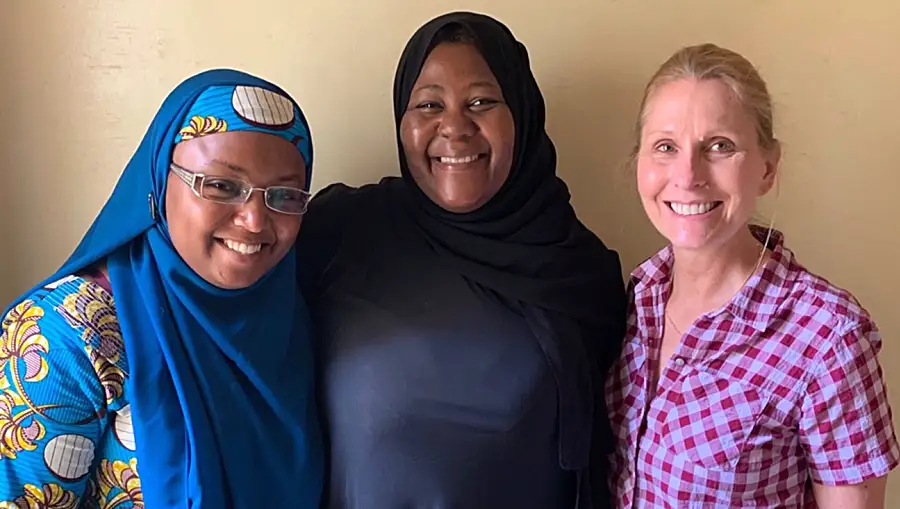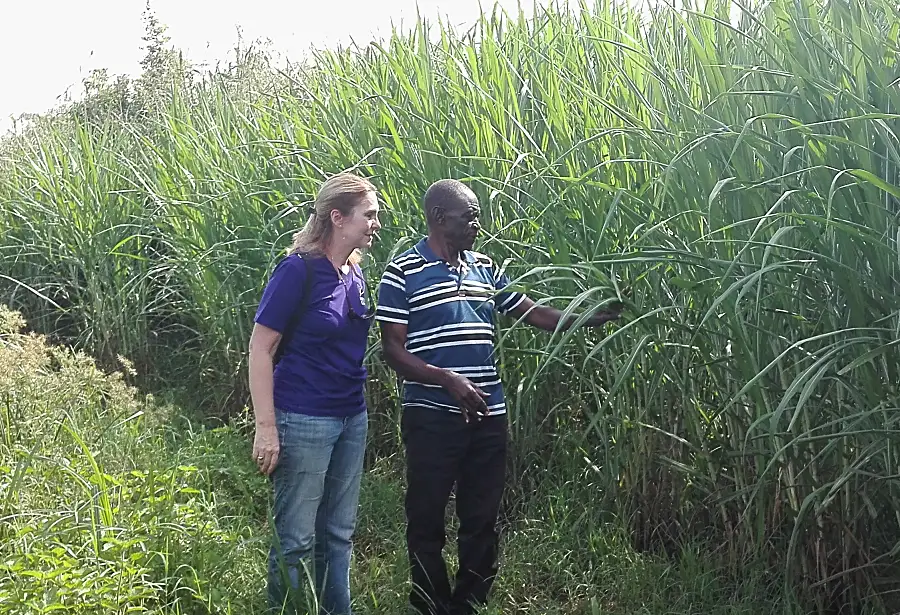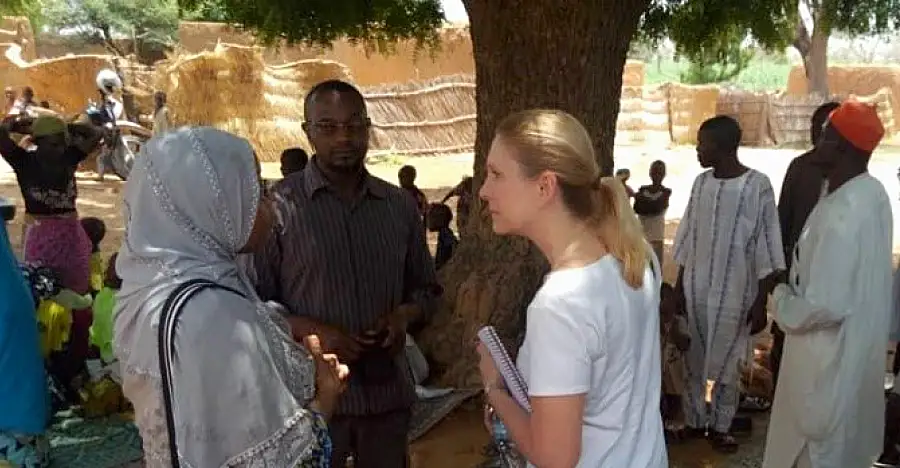Making Resilience Mainstream
Tracy Mitchell is passionate about helping families, communities, and countries build self-reliance
Tracy Mitchell is passionate about helping families, communities, and countries build self-reliance

For Tracy Mitchell, leading RTI’s resilience efforts was a natural extension of her international development field work in Africa and the former Soviet Union over the past 25 years. She saw firsthand the critical need for proactive planning to ensure that development gains are sustained despite shocks and stresses.
For example, food security and agriculture projects aim to pave a pathway out of poverty by teaching farmers to increase their agricultural productivity and incomes, but they also need to build resilience by helping farmers adapt to climate change, diversify their incomes, or access market services during times of need.
“Previously, we’d have projects that increased agricultural productivity, but poverty and malnutrition didn’t necessarily decrease along with it,” she said. “In many cases, a traditional agricultural development approach didn’t translate into the solutions we really wanted. We realized that we needed to focus on more holistic solutions for the most vulnerable people, which often means helping them manage risk.”
The U.S. Agency for International Development (USAID) defines resilience as
the ability of people, households, communities, systems, and countries to mitigate, adapt, and recover from shocks and stresses in a manner that reduces chronic vulnerability and facilitates inclusive growth.”
“Despite the global community’s best efforts over decades of agricultural development, we sometimes haven’t made the progress we'd like to see,” Mitchell said. “Much of this may be due to shocks and stresses—some of which occur every year or season—that consistently erode the gains we make against poverty and food insecurity. The recent emphasis on resilience within USAID and other donor programs highlights the need for development programs to further evolve so we can meet emerging global challenges while also helping countries become self-reliant.”

Mitchell, senior resilience and food security advisor at RTI, began her career as a Peace Corps volunteer, helping develop a national dairy herd development program in Tunisia. “My time in the Peace Corps was a game changer for me,” she noted. “I want to make a difference in people’s lives; I decided to work in international development, where I have been constantly motivated and inspired.”
An important part of her work is ensuring that proposed solutions to agricultural challenges will help the most vulnerable. For example, a focus on resilience means that a project takes an inclusive approach that considers potential shocks—for example, promoting crops or livestock that can survive despite irregular rainfall, and that are financially and nutritionally relevant for smallholder farmers including women.
“It’s important to make sure that when there are the inevitable shocks, people can get through them without requiring humanitarian assistance or without losing the gains they’ve worked so hard to make before the shock hit,” she said. “And a shock can take many forms—floods, border disputes, disease epidemics, and even political unrest can derail development efforts.”
In RTI’s partnership with USAID in Senegal, for example, we enabled farmers to track planting methods, timing, and yields. With data on their own performance, farmers compared their results from one season to the next to plan strategically, deciding how much credit to access or whether to use insurance to improve their outcomes. In Senegal, we also worked with local partners to introduce automated rain gauges that feed into a national crop insurance program. Crop insurance opens up opportunities for agricultural credit by helping farmers and bankers manage risk while simultaneously increasing their investment in food production.
For the past several years, RTI has implemented the USAID/Somalia Growth, Enterprise, Employment, and Livelihoods Program. Known by its acronym “GEEL”—which means “camel” in Somali—this project is helping Somalia’s economy heal from the long-term scars of war and recurrent crises. GEEL works in several economic sectors—agribusiness, fisheries, and more—and emphasizes international trade competitiveness, youth employment, and women’s empowerment.
Through GEEL’s work in the dairy sector, a potentially scalable coping mechanism for Somali pastoralists emerged when the program identified a few milk processing companies “leasing” lactating camels from pastoralists during the 2016-2017 drought. Pastoralists received income from the camel leases and the dairies ensured that their camels were well-fed and cared for during a limited period of time, something the pastoralists could not have done on their own.
Starting in June 2019, RTI embarked on a USAID-funded, mixed-methods study of the camel leasing activity and its potential to support resilience by mitigating droughts’ impacts on Somali pastoralist households as well as the private sector dairy companies.

While USAID defines resilience at the individual, household, community, system, and national levels, RTI’s broad range of experience and capabilities allows us to address system-level resilience across many sectors.
“We’ve had a lot of experience and success with market systems development, and because we work across all development sectors, it enables us to be more innovative and structured in applying resilience principles to diverse systems,” Mitchell added.
Because the concept of resilience is relatively new, the tools and methods to measure it are still being developed and tested. RTI is currently testing a new USAID market system resilience measurement framework in Somalia using a mixed-methods approach.
“We are hoping to identify the characteristics of resilient market systems in southern Somalia, streamline their measurement, and also gain insight into the ways that markets support vulnerable people during shocks. RTI is able to do this because of our broad research capabilities and expertise,” she added.
While she is primarily based in Washington, D.C., now, Mitchell still maintains her close connection to the field.
Mitchell noted that “seeing people improve their livelihoods and eventually move from poverty to prosperity makes this work real and incredibly rewarding.”
Tracy Mitchell is a Senior Research Food Security & Agriculture Specialist at RTI International. She has more than 25 years of experience in international development, having served as Chief of Party and provided technical assistance to USAID- and USDA-funded economic growth and poverty-reduction development programs in Africa and the former Soviet Union. Currently, Ms. Mitchell leads RTI’s resilience practice in the International Development Group’s Food Security and Agriculture division. Learn more about Ms. Mitchell.